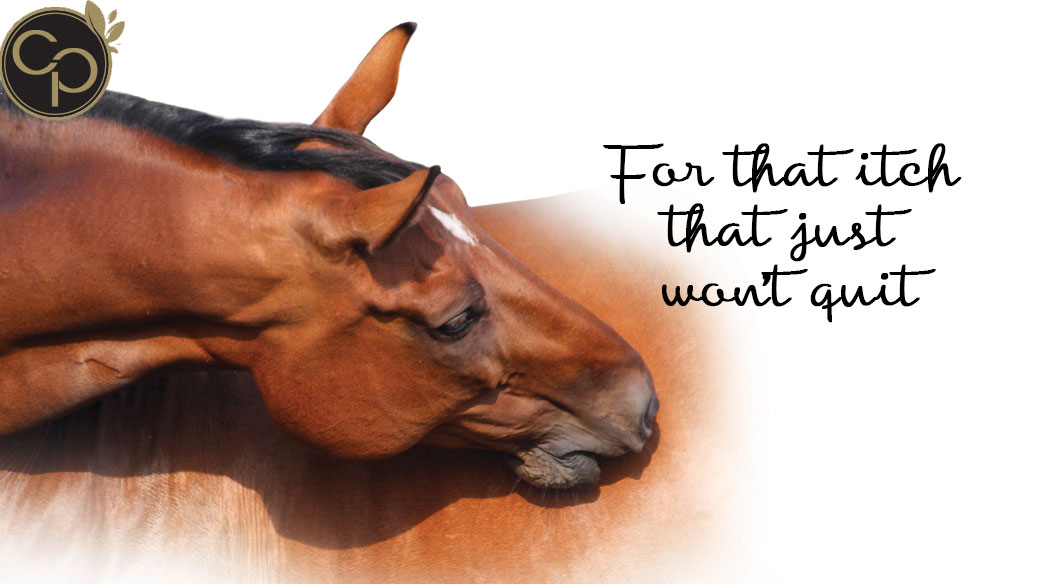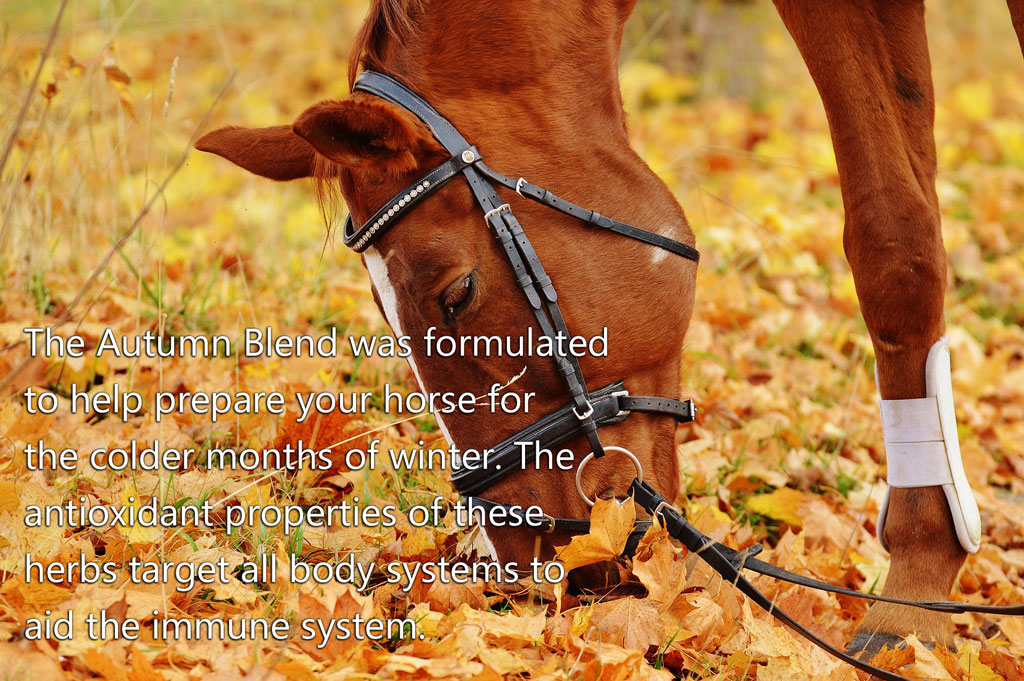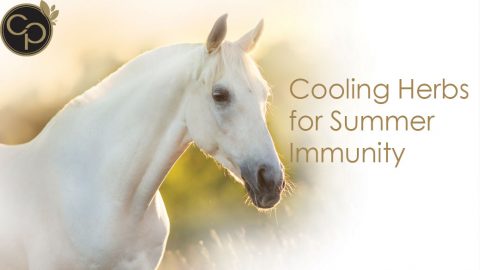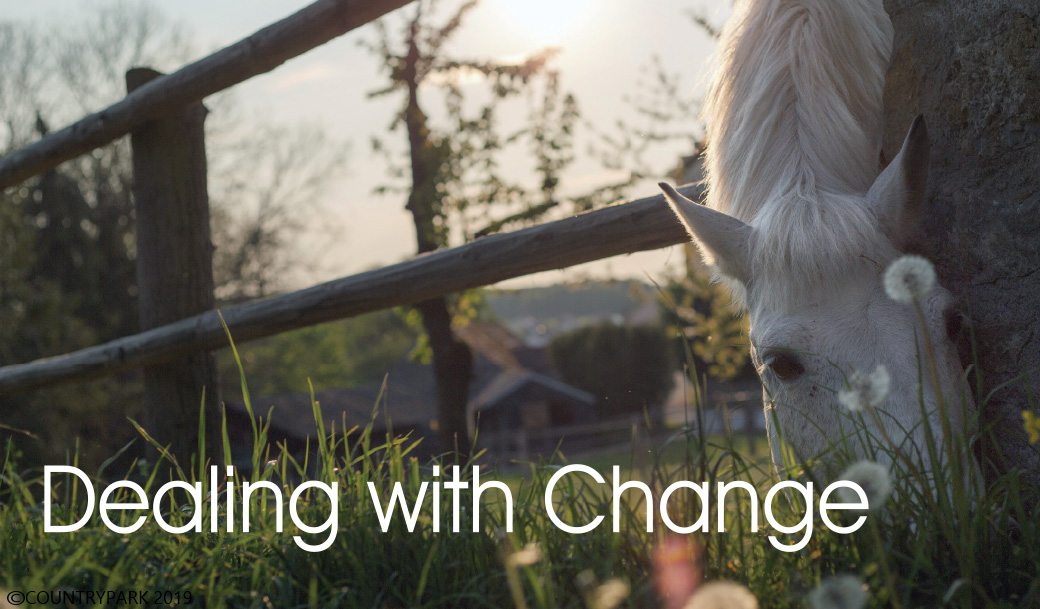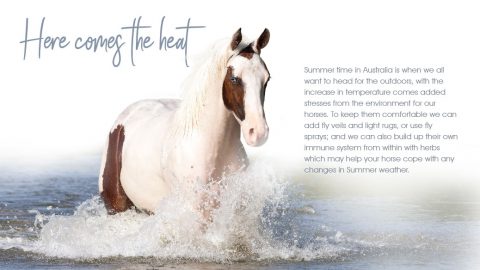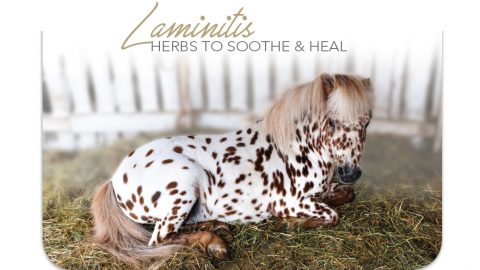….herbal support to the rescue
From a herbal perspective we don’t necessarily suggest herbs for a specific problem. For example if your horse has Queensland Itch, the herbs you use with your horse may not be the same herbs your neighbour gives their horse. This is because a herbalist looks at the whole horse and often the expression of itchy skin gives other indicators for the best possible combination in each individual case.
Addressing each horse’s individual discomfort will help tailor your own approach to any horse who has an ‘itch’.
When looking at the whole body, a skin issue can be a sign that there is a need to support the lungs, liver, kidneys or bowel. Your first question with itchy skin is “what are your horse’s poops like”. If they are not healthy, then you need to address the digestive tract. To do this use mucilaginous herbs such as marshmallow root or slippery elm bark as your cornerstone herbs. If the horse developed an itch after a long term or intense respiratory infection these herbs also have a reflex action on the lungs and its linings so bring tone to the lungs and assist the elimination of toxins via respiration so the skin no longer has to carry the load.
If a horse has a skin problem and has a history where they may have needed cortisone injections, then you may need to address how the kidneys are eliminating wastes from the body. The herb clivers will assist lymphatic effectiveness and parsley leaf is a nice gentle kidney tonic.
Any liver herb will help relieve any skin issue and burdock root is a valuable addition due to its blood cleansing properties. When your horse has flaky dry skin, the shaved root can be made into an infusion and then poured onto your horse’s feed daily.
Powdered burdock root can be directly into feed, however being a bitter herb, if your horse baulks at the taste, start with a pinch and work up to your desired amount over a week.
Itch responds specifically to nettles though some horses may develop urticaria, itchy lumps, if a plant in the paddock touches them (nettles botanical name is Urticaria urens). However dried nettle leaf added to the feed helps improve the integrity of the skin so it is less vulnerable to itch. This herb is always a good first herb when your horse first has itch or has suffered chronic itch as it is full of nutrition that may be lacking that could be linked to the skin issue, and any irritating skin condition often responds.
If your horse has rubbed some skin raw or has scabby skin, calendula petals will work at cleansing the skin like clivers does, and it will assist in healing inflamed skin. It also has a histamine-like action which helps if the skin issue has an allergy aspect. If there are patches of coat rubbed off when attempting to relieve itchiness, either nettle leaf or clivers will support regrowth of the coat as both contain minerals that feed the skin. Rosehips will also help the condition of your horse’s coat and can be added at any stage of your horse’s recovery.
Don’t forget your horse’s nervous system. If with the itch your horse sweats excessively, add lime tree blossom to help the peripheral circulatory and nervous system; or if your horse avoids your touch, try vervain.
With repelling insects that can contribute to aspects of the itch issues, consider adding a combination of garlic granules and brewers yeast to your horse’s feed. This combination helps make the blood less tastier to these pests.
Itch is a fickle condition to address, so be patient and if your horse has a flare up with a change in the weather or feed, tweak your herbs and continue supporting the whole horse.
Disclaimer: The information provided in this article is for educational purpose only and is not meant to replace veterinary advice or treatment. Copyright: Catherine Bird has been an equine natural therapist for 33 years working closely with Country Park Herbs for over 21 years offering advice to their clients.

